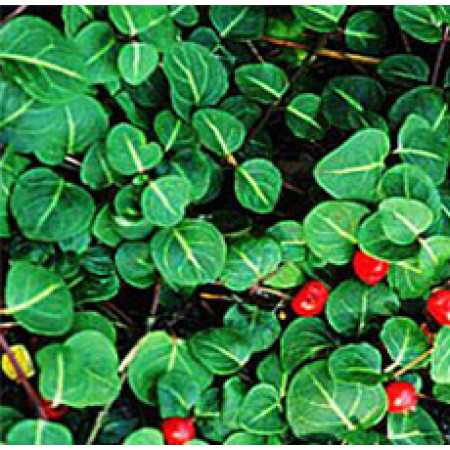SQUAW VINE HERB
Product Name: SQUAW VINE HERB
Botanic Name: Mitchella repens
Squaw Vine is among the best remedies for preparing the uterus (and whole body) for child birth. For this purpose this herb has been traditionally taken for several weeks before the child is due, thus ensuring a safe birth. Squaw Vine may also be used for the relief of painful menstrual periods. As an astringent, it has been used in the treatment of colitis. Squaw Vine is famous for its use by women for a wide range of gynecological complaints. It is reputed to promote an easy labor by aiding contractions of the womb during childbirth and is also recommended for dysmenorrhea and other painful conditions of the female reproductive tract. Native Americans ate the berries and made them into a jelly, which was eaten in case of fevers. Squaw Vine is said to have a calming effect on the nervous system and thought to improve digestion. The part of this plant used medicinally is the vine (above-ground portion), and the primary chemical constituents of Squaw Vine include alkaloids, glycosides, saponins, mucilage and tannins. As an astringent, it has been used in the treatment of colitis, especially if there is much mucus. Squaw Vine exerts a mild tonic influence on the mucous membranes, which slowly abates excessive mucous discharges, and this action has led most herbalists to pronounce it an astringent. However, this action is wholly tonic and may also be used for catarrhal and leukorrheal discharges, as well as for chronic dysentery. It may be used in nervous exhaustion, irritability or debility in either sex, especially when symptoms involve the reproductive system.Squaw Vine is useful for all forms of nervous feebleness and irritability of a chronic character. Past topical applications of Squaw Vine have included its use as an eyewash, an astringent skin wash and as a salve for sore breasts in nursing mothers.









